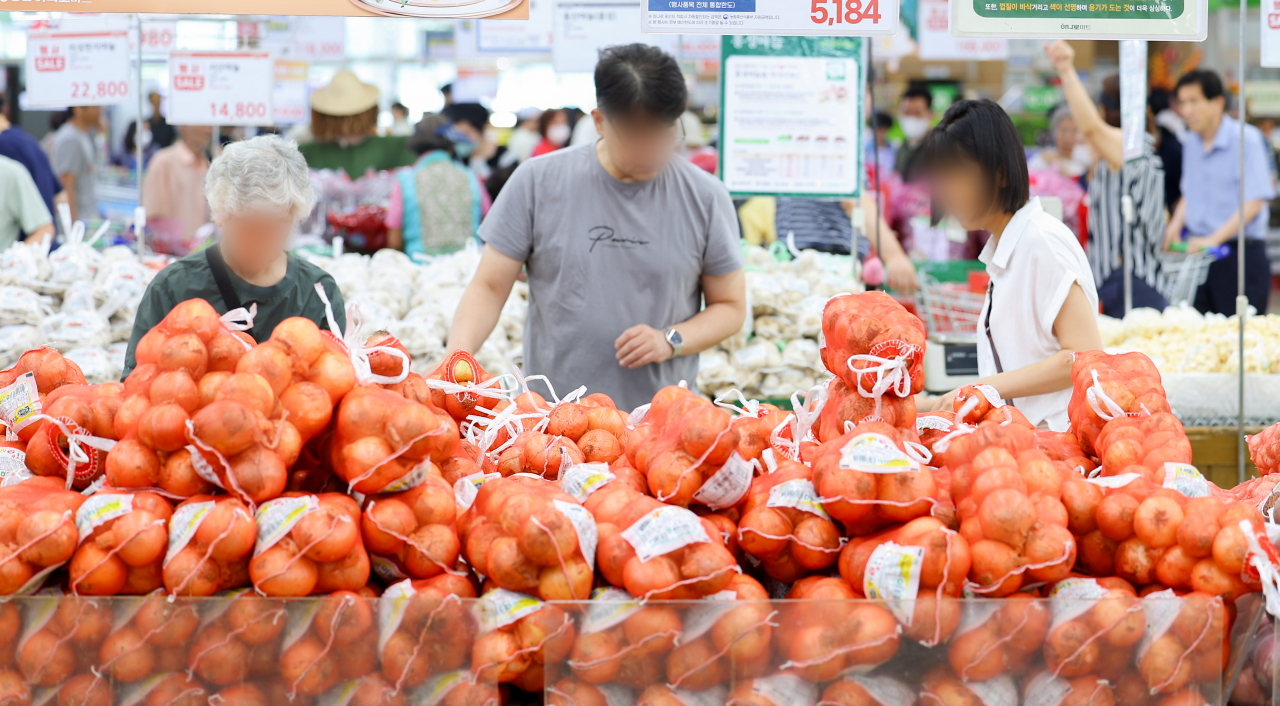
The on-year growth in consumer prices is likely to bounce back to the 3 percent range from this month due to the spike in international oil prices.
While inflation in Korea has been easing off this year, the Finance Ministry expects it to climb back, reaching the 3 percent range before coming down again in October.
Korea's on-year growth in consumer prices has been showing signs of slowing down this year. It came down to 4.8 percent in February from 5.2 percent in January, and stayed in the 3 percent range through April and May before dipping to 2.7 percent in June.
In July, the figure stood at 2.3 percent, the lowest in 25 months, falling near the Bank of Korea’s target set at 2 percent. However, the prices are expected to rebound in coming months as international oil prices are on a strong run.
The recent price uptick has been driven by short supply, following the OPEC+’s production cuts decision made in April. Prices are expected to further rise as Saudi Arabia, the world’s biggest exporter of crude oil, announced additional voluntary cuts earlier this month.
Due to the tightened oil markets, the average retail gas price in Korea spiked from 1,569.2 won ($1.18) per liter in the first week of July to 1,740.78 won in the fourth week of August according to Opinet, the oil information platform run by the Korea National Oil Corporation. The weekly average price of diesel surpassed 1,600 won for the first time in six months.
To address soaring fuel prices, the Finance Ministry announced earlier this month that it would extend a tax cut on fuel which was set to expire this month. The 25 percent tax discount for the consumption of gasoline and 37 percent discount for the consumption of diesel and liquefied petroleum gas butane will be maintained until October.
The Trade Ministry even called for oil refineries to refrain from raising prices above the increase in international oil prices.
The government has been keeping a close watch on the price of fuel, as it could lead to inflationary pressures on the economy which has been on the wane due to soaring prices.
The government projects price growth to fall back to the 2 percent range from October, due to the base effect of a surge in utility bills -- including electricity and gas --from last year. Also, it expects prices of agricultural, fisheries and livestock products to stabilize after the Chuseok (Korean Thanksgiving) holiday in late September.
“The inflation rate could go up to the early 3 percent range in August and September due to the recent spike in oil prices,” Finance Minister Choo Kyung-ho said at a meeting held at the National Assembly on Aug. 22. “It will come down to the 2 percent range in October.”




















